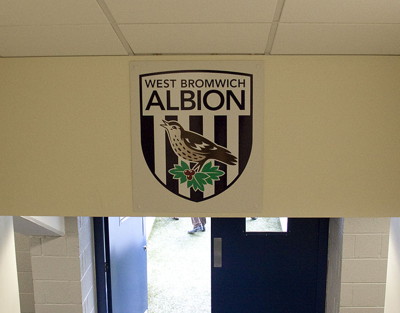
Everyone knows the name of their football club, with the vast majority also knowing a fair amount of their club’s history. What not all fans will know is the history of where their club’s suffix has come from.
It’s easy enough to work out why a football team might have ‘city’ after its name, but what about the likes of ‘Albion’ or ‘Wanderers’? Where do those sorts of names come from and why do only some clubs have them?
They’re the sort of questions that we’ll be looking to answer here, exploring the history of the various suffixes where a history is actually available. There are 22 different suffixes in use in the English game, depending on your view of ones like ‘Palace’.
It is an impressive amount of names that come after a club’s most obvious branding, so what are they all and what do they mean?
The 22 Different Suffixes
At the time of writing, there are 22 different suffixes in use in English football. They are as follows:
- Albion
- Alexandra
- Argyle
- Athletic
- City
- County
- Dons
- Forest
- Harriers
- Hotspur
- Orient
- North End
- Palace
- Rangers
- Rovers
- Stanley
- Town
- United
- Villa
- Vale
- Wanderers
- Wednesday
What Do They All Mean?
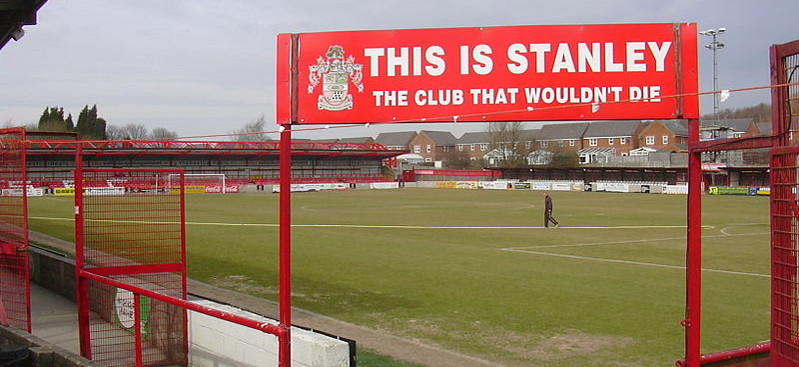
Some of the suffixes used by football clubs, like ‘Town’ and ‘City’, have fairly obvious origins. Not all of them do, however, and it’s worth exploring where they come from and what they mean.
It’s entirely fair to say that this list may well not be exhaustive, to say nothing of the fact that there are possibly a few controversial additions to it.
Albion
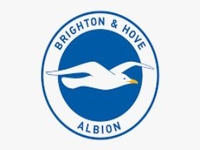 Brighton & Hove Albion; Burton Albion; West Bromwich Albion; there are a fair few sides with an Albion suffix plying their trade in English football. Quite where the term comes from is a matter of some debate, with some believing that it was originally a reference to the White Cliffs of Dover. It first appeared in use in the 9th century, featuring in a passage that translates as, “Britain is an island of the ocean, that was a long time ago called Albion.”
Brighton & Hove Albion; Burton Albion; West Bromwich Albion; there are a fair few sides with an Albion suffix plying their trade in English football. Quite where the term comes from is a matter of some debate, with some believing that it was originally a reference to the White Cliffs of Dover. It first appeared in use in the 9th century, featuring in a passage that translates as, “Britain is an island of the ocean, that was a long time ago called Albion.”
The idea that it was something to do with the white cliffs of dover comes from the fact that it was believed to be linked to the Latin word ‘Albus’, which means white. It certainly was used to refer to Britain as a whole originally, then being narrowed down to refer to certain parts of the country before Brighton & Hove used it with their football team because of their white cliffs, with other teams copying its use in the years that followed.
Alexandra
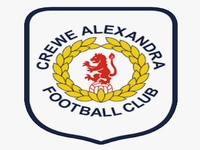 Crewe Alexandra had played cricket and almost certainly rugby before the idea to form a football team was decided upon, which took place in 1877.
Crewe Alexandra had played cricket and almost certainly rugby before the idea to form a football team was decided upon, which took place in 1877.
There is no clear substantiation of the reason behind the club getting its name, with some suggesting that the addition of ‘Alexandria’ came from a nearby hotel.
Others believe it’s far simpler, being a nod to Princess Alexandra of Denmark, the wife of Queen Victoria’s eldest son.
Argyle
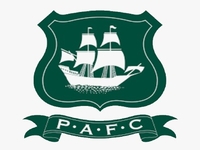 The Argyll and Sutherland Highlanders were a Scottish army regiment that had strong football connections, which is the reason some believe that Plymouth added this suffix to the club’s name. For others, it’s likely to be linked to the fact that the club was originally formed in a pub called the Argyle. Plymouth United Football Club was disbanded in 1894, with the resurrection three years later coming as Argyle Athletic Club.
The Argyll and Sutherland Highlanders were a Scottish army regiment that had strong football connections, which is the reason some believe that Plymouth added this suffix to the club’s name. For others, it’s likely to be linked to the fact that the club was originally formed in a pub called the Argyle. Plymouth United Football Club was disbanded in 1894, with the resurrection three years later coming as Argyle Athletic Club.
This became Argyle F.C. when it produced its first rulebook in 1898. Whether the use of Argyle is linked to the Scottish regiment or the The Argyle Tavern has never been established. Indeed, some believe it might even have been because the founder members of the team lived on nearby Argyle Terrace. Whatever the reason, it is a unique name in football and one that supporters are extremely proud of.
Athletic
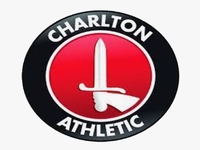 It’s much easier to explain the origins of the name ‘Athletic’ when it comes to football clubs, even if it’s not necessarily all that simple to explain why certain clubs took it on and others didn’t.
It’s much easier to explain the origins of the name ‘Athletic’ when it comes to football clubs, even if it’s not necessarily all that simple to explain why certain clubs took it on and others didn’t.
Most of the teams that have Athletic as their suffix originated out of track and field clubs, meaning that athletics as a sports was in their bones.
Interestingly, no club with an ‘Athletic’ suffix has ever won the league, with Charlton and Oldham coming the closest to date.
City
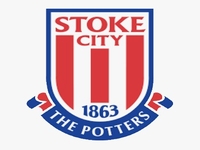 Another suffix that is simple in its origin.
Another suffix that is simple in its origin.
Whether it be Norwich, Stoke or Exeter, clubs that wish to celebrate their side’s link with the city that they play in is clear.
Sometimes a club has taken the ‘City’ suffix because there was already a club playing with the city’s name in its title, whilst others decided to adopt it because the decision to make the place a city was relatively new and so it was done in celebration.
County
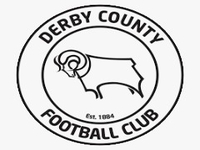 The only team to have won the English top-flight at the time of writing with ‘County’ in their name is Derby County, doing it twice in the 1970s.
The only team to have won the English top-flight at the time of writing with ‘County’ in their name is Derby County, doing it twice in the 1970s.
As with other geographical titles, it simply comes from the area that the team is based in, choosing to take a more wide basis than the idea of being named after a town or city.
It’s not the most exciting of origins, but it’s an interesting one nevertheless.
Dons
 Geography is also the reasoning behind the name suffix ‘Dons’, which Wimbledon took on when the club was moved to Milton Keynes.
Geography is also the reasoning behind the name suffix ‘Dons’, which Wimbledon took on when the club was moved to Milton Keynes.
Wimbledon were always nicknamed as ‘the Dons’, so although the club dropped the link to the area of London it was previously based in after the move, it decided to keep the ‘Dons’ part of the title.
The MK Dons wasn’t loved by Wimbledon fans though, with Wimbledon A.F.C. being formed instead.
Forest
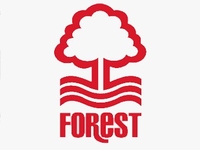 As a city, Nottingham’s links to Robin Hood and Sherwood Forest have long been well-known, so it’s not a shock that the football club decided to include a reference to it in its title.
As a city, Nottingham’s links to Robin Hood and Sherwood Forest have long been well-known, so it’s not a shock that the football club decided to include a reference to it in its title.
There’s a tree on the city crest, so there’s no shame in embracing that side of things.
Robin Hood, of course, would rob from the rich to give to the poor. Forest often do the opposite when they lose to teams below them in the table.
Hotspur
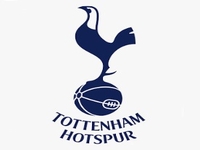 Sir Harry Hotspur was a 14th century Northumberland resident who appeared in Shakespeare’s Henry IV.
Sir Harry Hotspur was a 14th century Northumberland resident who appeared in Shakespeare’s Henry IV.
A soldier and fighter, one of his descendants owned land at the Tottenham Marshes which later became the home of the football club.
It was apparently for this reason that the ‘Hotspur’ was added to the end of the club’s name, which is often shortened to simply ‘Spurs’ by fans.
Harriers
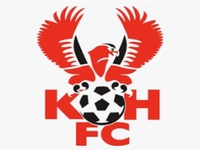 Kidderminster Harriers was formed in 1886, coming from an athletics and rugby union club.
Kidderminster Harriers was formed in 1886, coming from an athletics and rugby union club.
The word ‘Harriers’ comes from the earliest athletic clubs, which added the suffix in the wake of ‘hare and hound’ chases becoming popular. This was in turn because of a popular pastime known as ‘paper chasing’, which was popularised on Wimbledon Common.
The Kidderminster Harriers simply grew from an athletics club.
Orient
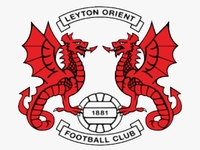 Leyton is an Anglo-Saxon term that means ‘settlement on the River Lea’. That part of the club’s title is easy enough to understand, but does the ‘Orient’ part have anything to do with China?
Leyton is an Anglo-Saxon term that means ‘settlement on the River Lea’. That part of the club’s title is easy enough to understand, but does the ‘Orient’ part have anything to do with China?
Sort of.
It was taken from the Orient Shipping Company, which employed a number of the club’s players back before football turned professional. It was only turned into an Orient in 1886, having been founded as Eagle Cricket Club two years earlier.
North End
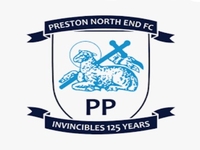 Originally a cricket club, Preston began playing football in 1878 as a way of keeping the players fit during the winter months.
Originally a cricket club, Preston began playing football in 1878 as a way of keeping the players fit during the winter months.
It became a full-time football club in 1880, with the name Preston North End being adopted.
As you might imagine, the ‘North End’ part of it simply because the club moved to the north end of the town and it therefore gave them a geographical location.
Palace
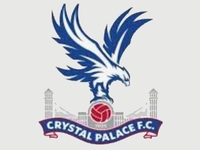 Another football club that owes its title to the company that helped to form it, the Crystal Palace Company owned the exhibition at Crystal Palace and formed the Crystal Palace Club to play cricket in 1857.
Another football club that owes its title to the company that helped to form it, the Crystal Palace Company owned the exhibition at Crystal Palace and formed the Crystal Palace Club to play cricket in 1857.
As with other cricket clubs up and down the country, the company turned its attention to football with the formation of Crystal Palace Football Club in 1861.
Whether it’s technically a ‘suffix’ is a matter of some debate.
Rangers
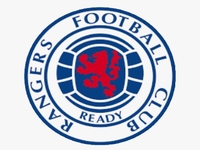 There’s something charming about the way in which clubs with ‘Rangers’ in the title got the suffix.
There’s something charming about the way in which clubs with ‘Rangers’ in the title got the suffix.
Generally speaking, it came about because they had no fixed ground during the more formative years of the team’s existence, so literally ‘ranged’ around playing in various places.
Queens Park Rangers is one such example, playing at nearly 20 difference grounds before settling at Loftus Road.
Rovers
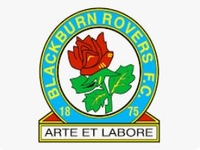 A similar story to Rangers is in play for Rovers, with the suffix being given to clubs that moved from ground to ground.
A similar story to Rangers is in play for Rovers, with the suffix being given to clubs that moved from ground to ground.
Blackburn Rovers are obviously one of the most famous examples, with Forest Green Rovers also coming to the fore in recent years.
Blackburn won the Premier League in the early years of the competition under the management of Kenny Dalglish, being the only ‘Rovers’ to do so to date.
Stanley
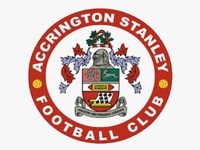 Accrington Stanley, who are they? Exactly the questions we’re looking to answer here.
Accrington Stanley, who are they? Exactly the questions we’re looking to answer here.
Accrington’s original football club retired from the football league just five years after forming.
When they left the league, another club called Stanley Villa took their place and then added the town’s title to their name.
That’s where Accrington Stanley comes from as a name of a football team, so really it doesn’t mean anything.
Town
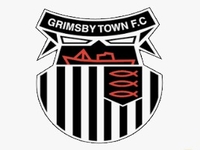 Unsurprisingly, the idea of a team being named ‘town’ comes from…well…being based in a town.
Unsurprisingly, the idea of a team being named ‘town’ comes from…well…being based in a town.
As far as we can tell, no club has yet been based in a town that has been promoted to a city and therefore had to make a decision about their title, but never say never.
It’s not uncommon for clubs to add ‘Town’ as a suffix because there’s already a club based in the location with a different name.
United
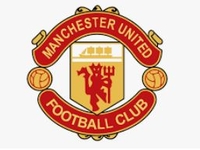 Pretty much every division in England boasts a ‘United’, which isn’t all that surprising when you consider that it’s one of the most popular suffixes in the game.
Pretty much every division in England boasts a ‘United’, which isn’t all that surprising when you consider that it’s one of the most popular suffixes in the game.
It’s simple enough to figure out where it comes from, usually added to two or more sides that have joined forces to create one team.
It’s also possible that a club has used it because they were previously playing several different sports, such as cricket and rugby, but then combined to make them ‘United’.
Villa
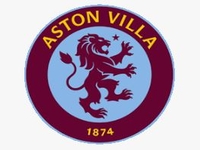 Villa Cross Wesleyan Chapel in the Aston area of Birmingham created a cricket team. As with so many others, the team wanted to keep fit during the winter months, so the new sport of football seemed to be the obvious way to do it. Based in Aston and coming out of the Villa Cross Wesleyan Chapel, taking on the name ‘Aston Villa’ was an obvious thing for the newly formed football club to do.
Villa Cross Wesleyan Chapel in the Aston area of Birmingham created a cricket team. As with so many others, the team wanted to keep fit during the winter months, so the new sport of football seemed to be the obvious way to do it. Based in Aston and coming out of the Villa Cross Wesleyan Chapel, taking on the name ‘Aston Villa’ was an obvious thing for the newly formed football club to do.
Or did it? On the club’s official website, a different story is told. It talks of the area of Lozells, which is where Villa Road, Lozells Road and Heathfield Road all joined and was known as ‘Aston Villa’. That was named in honour of a large Georgian house that stood at the junction of two of the roads. That eventually became the ‘Villa Cross’ pub, which some feel is why the football club took on the moniker. The exact truth may never be known.
Vale
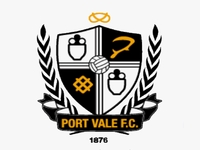 It’s not uncommon for football clubs to take their name from the location that the club was formed, but it’s fair to say that it is quite rare for that to be a place named ‘Port Vale House’.
It’s not uncommon for football clubs to take their name from the location that the club was formed, but it’s fair to say that it is quite rare for that to be a place named ‘Port Vale House’.
Nevertheless, that’s the origin of the use of ‘Vale’ as a suffix for Port Vale, with some suggesting that it fits into the same bracket as Crystal Palace of the last part of the title not really being a suffix but merely part of the name.
Wanderers
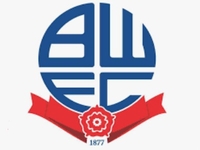 As with Rangers and Rovers, the notion of a club being called ‘Wanderers’ is based around the idea of them struggling to settle during the club’s more formative years.
As with Rangers and Rovers, the notion of a club being called ‘Wanderers’ is based around the idea of them struggling to settle during the club’s more formative years.
They would almost literally ‘wander’ from venue to venue, looking for a permanent home where they could plat football matches.
The likes of Wolverhampton and Bolton both had ‘Wanderers’ added to their names when the clubs were formed.
Wednesday
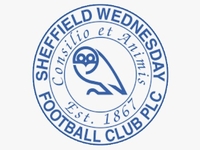 Sheffield United was the first football club to boast the ‘United’ suffix, so the other team in the city had to go one step further in terms of a unique name.
Sheffield United was the first football club to boast the ‘United’ suffix, so the other team in the city had to go one step further in terms of a unique name.
It’s believed that the origin of it lacks any sense of glamour and is instead simply because it was the day of the week that the cricket team played on before it began playing football to keep fit in the winter.
‘Wednesday’ was then added as a suffix, giving the club a unique name.
